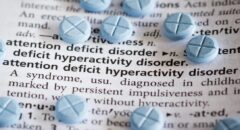
ADHD is a neurobehavioral development disorder that affects both children and adults. In the U.S. alone, there are approximately 13 million people who suffer from what we commonly call ADHD (Attention Deficit Hyperactivity Disorder). ADHD is also prevalent among African-Americans and can have devastating effects long-term. For various reasons, we are often reluctant to accept certain mental health conditions as being a part of our community, and we may naturally reject any form of treatment available, especially medication.
Sure, there have been cases of misdiagnoses within our school systems, especially. However, if your child is experiencing symptoms related to ADHD, it is critical to seek out a licensed healthcare provider that can test for a potential diagnosis and develop a treatment plan.
Contrary to what many people think, children with ADHD are often gifted. However, if gone untreated, the symptoms of ADHD can lead to a lifetime of underachievement in the most intelligent child.
Consistent forgetfulness, a lack of organization and attention, and problems with relationships can be devastating and get worse over time. Children and adults with ADHD will very often suffer from anxiety and depression as a result of consistent criticism and underperformance in school or work.
MUST READ: Misdiagnosed: 5 Conditions Mistaken For ADHD
Therefore, getting treated should not be optional as these symptoms have the potential to make individuals feel alone, ashamed, and doomed for failure throughout their lives.
To further complicate things, the untreated effects of these emotional symptoms, along with the ADHD symptoms, can often lead to additional mental disorders and even criminal behaviors.
Alternative ADHD treatments
ADHD treatment is usually divided into two categories – medication and non-medication. There are several options for treating ADHD without medication, however, these are rarely considered as options.
These treatment options do indeed require planning and consistency, so both the parent and child, as well as adults with ADHD, will have to wrap their minds around the level of commitment required for successful results.
Here are some alternative, non-medication options:








